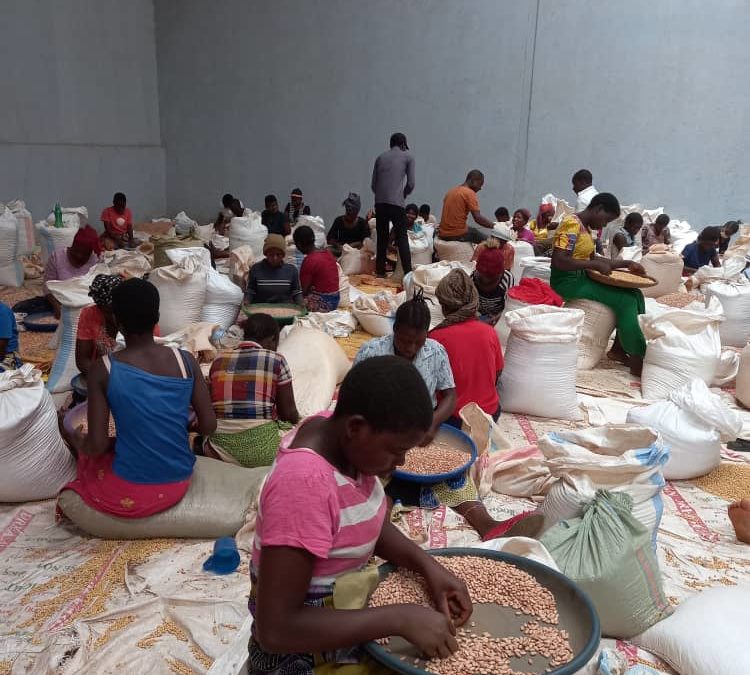Smallholder farmers in Malawi struggle to find reliable buyers and fair prices for their crops, while grain traders struggle to find the necessary quantities of quality grain demanded in the market. One solution that has helped both grain sellers and buyers is the multi-stakeholder platform (MSP).
MSPs provide spaces for learning and knowledge exchange where various stakeholders come together to diagnose their challenges and identify opportunities to address them, which is mutually beneficial. The Feed the Future Innovation Lab for Legume Systems Research project, Transforming Seed Systems to Respond to Bean Variety Demand through Multi-Stakeholder Platforms in Malawi examines how MSPs can drive bean seed systems to respond to market demand. The project is led by Jean Claude Rubyogo, CIAT/Alliance of Bioversity International.
Farmers often don’t have access to certified, basic and breeder seed due to challenges within the bean seed production and supply system. The project is examining how MSPs facilitate linkages among bean stakeholders that pulls seed demand and production.
Grace Mhango is a bean trader in Malawi. Traditionally, she struggled to find the quantity of quality beans to fulfill her orders. Since engaging in an MSP, she has identified that one of her biggest constraints in being able to purchase the beans she required was that the farmers did not have access to certified quality seed. Due to this inability to source clean seed, the farmers would plant seeds saved from the previous growing season. This saved seed often yields lower quality and yield than certified seed. Once this obstacle was identified, Grace, who had access to clean seed, was able to purchase US$40,000 in certified seed and provide it to her contract farmers to grow. By planting the clean seed, the farmers were able to meet her high-quality and yield requirements, enabling Grace to fulfill her orders.
Grace’s model of engaging with farmers is a win-win for her business and the farmers. The contracted farmers grow the grain for her market, and she provides certified seed that ensures premium quality of the beans. “I can trace the beans from farm to market because I work directly with the farmers and I know the seed they grow,” she shared.
Grace is working with a farmers group of 15. In the mixed group, there are nine men and six women. Patricia Chithu, one of the women farmers, shared, “I have seen a lot of progress since we started working with Madam Grace. All my beans are collected in our group and I have a place that earns me money to buy other things at home.”
“MSP project is a game changer; it is a unique market-centric inclusive business model that embraces a private-sector led approach. This is key to creating a sustainable and intergenerational business case,” explains Mhango.
“It is supporting the entire bean value chain from seed to the table in turn broadening the market base for all value chain players including the rural farmers, especially women and youth. This to me is one of the smart solutions that will be helpful to attaining food, nutrition and income security in Malawi.
The project provides access to clean planting material, which has helped us to expand our business and increased our seed producers’ numbers, which will help increase both productivity and profitability to both of us. The project is providing a win-win situation to value chain players. I am proud to be a beaner and feel very privileged to be part of the project,” concluded Mhango.
This article was first published in Agrilinks as part of the Seed Delivery blog series
Related links: https://www.canr.msu.edu/legumelab/project/transforming-seed-systems-to-respond-to-bean-variety-demand-through-multistakeholder-platforms-in-malawi

